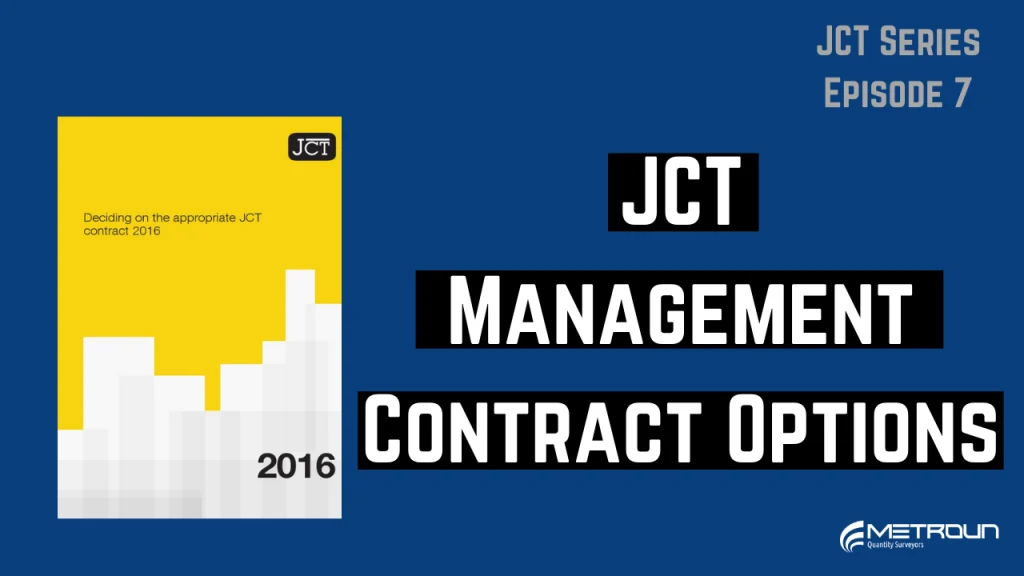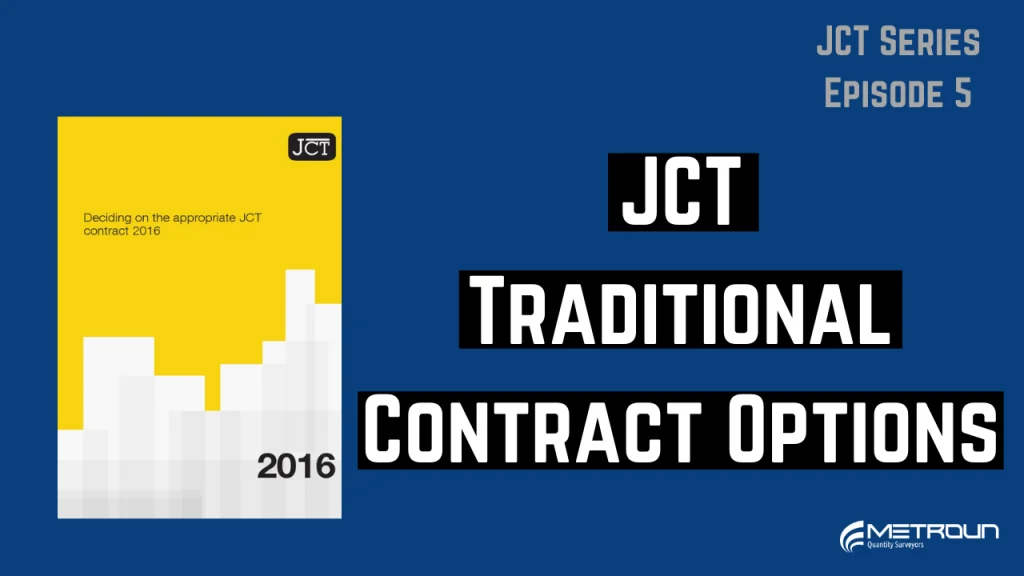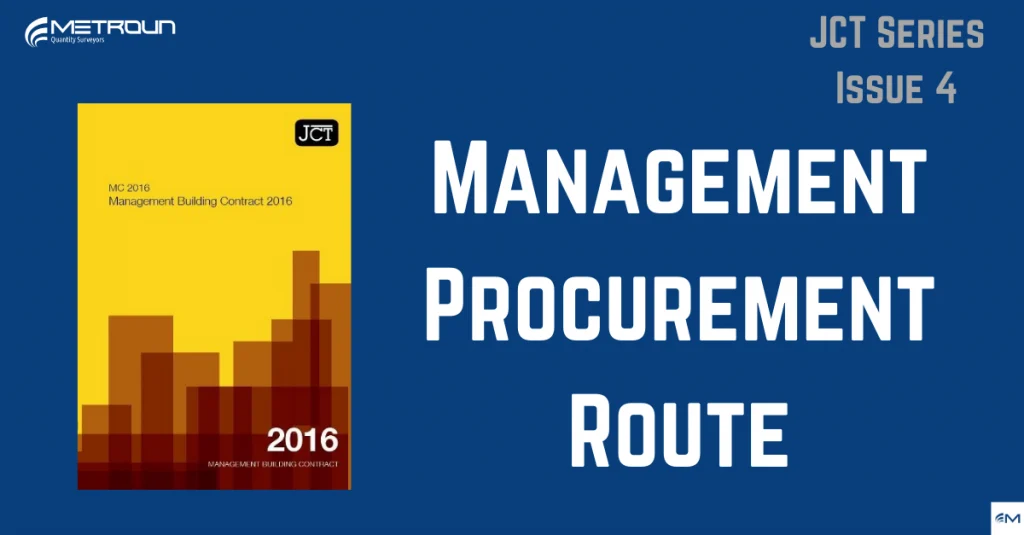JCT Management Contract Options

The most recent version of the JCT suite of contracts is 2016. In this video, we will explain the Management
NEC Core Clauses Explained

The clauses within the NEC contract can be split into the following categories: Core Clauses – which make up the main body of the contract – a chosen Main Option Clause which determines how work is paid, and a selection of optional bolt-on clauses known as SecondaryOption Clauses X Y or Z. Please click here for our selection of NEC tailored excel templates for download. In this Article we
Key Construction Professionals

Construction projects are extremely complex, involving a vast number of different people and/or firms with different expertise. This blog takes a brief look at some of the key professions involved on a project and what their general day to day tasks entail in order to ensure a project runs smoothly. Estimator Responsible for estimating the costs, materials, and labour required to complete a project. Generally, the estimator will engage with the following: · Liaising with third-party companies and the supply-chain in order to gain accurate knowledgeof the costs different tasks will require. · Produce a complete or partially complete BoQ, depending on the contract type. · Drawing up bids · Engage in the tendering process The estimator will commonly work extremely closely with the architect to ensure they are costing up what the client wants, envisions and to their budget. Architect The architect is the person who is tasked with turning a client’s needs and wants into reality. They must communicate with the rest of the site team to make sure that the client’s vision is implemented properly. They regularly undertake tasks such as: · Developing plans and drawings that meet the client’s desires · Overseeing construction and key decisions · Consider environmental, economic, and legal needs · Under-take and oversee planning applications Architects are extremely conscious to make a building aesthetically pleasing and impressive and this is often their number one goal. Engineers on the other hand are more concerned withthe structure and design being functional and safe. Engineer Engineers come in many forms with different expertise however generally, the engineer’s main duties include: · Developing and designing the structure according to the architect’s plans · Preparing detailed drawings including specifications · Develop engineering calculations, diagrams, and technical reports
NEC3 vs NEC4: The Key Changes

12 years after the release of the highly credible NEC3 a new NEC contract was formed. In March 2017 the
JCT Traditional Contract Options

The most recent version of the JCT suite of contracts is 2016. This takes account of the changes to the
How Much Can I Earn As A Quantity Surveyor?

You might hear people say Quantity Surveying is a well-paid occupation. But how much does a QS actually earn? In
The JCT Management Procurement Route

As stated in our previous article in the JCT Series, there are 3 procurement routes which can be taken under the JCT
Top tips for graduate Quantity Surveyors seeking employment!

Thousands of you have been there, you have studied Quantity Surveying for the best part of 2, 3 or maybe 4 years, and reached that moment where you get that all important diploma… Congratulations! The moment you never thought would come is finally here, you have achieved a Batchelors Degree or perhaps even a Masters and you feel on top of the world. The world is quite literallyyour oyster. But suddenly, it hits you – “How do I take that first step into the next stage of my life?” “What do I include in my CV?” “How to I prepare for an interview?”. All of these burning questions and apprehension’s. This short blog, along with our “Top tips for graduate Quantity Surveyors” video (available here: https://www.youtube.com/watch?v=_XOP3CljbdE) seeks to help with this daunting prospect and tackling the big scary world of work! – We are joking of course; it is honestly not that scary 😉 We will run through tips and advice on what characteristics and traits employers of graduate QS’s look out for, how to make your CV stand out and what interview questions you are likely to be asked. Giving you extra tools to prepare for and face your future employers confidently. As with any profession, the day to day dealings of a QS are very rarely black and white and operating in the commercial world means you are very often working in ‘grey’ areas. · Contractual disputes · Estimating and quoting · Building and assessing compensation events or major changes · Agreeing Final Accounts To list just a handful, are day to day tasks that quantity surveyors deal with that lend themselves to certain characteristics and attributes which employers will look for. These include, but are not limited to: · Confidence and self-assurance · Astute attention to detail · Organisation and meeting deadlines · Good use of self-initiative and intuition · Commercial and business acumen · Ability to build relationships As we are sure you are aware, the job market can be very competitive so next we want to cover some tips on how to get your CV noticed. When building your CV, we recommend writing it in a way that promotes any scenarios where you have demonstrated evidence of thecharacteristics outlined, in your personal, educational, or work experience – however limited. If you are stuck on how to get started with your CV and the layout, we have a CV template that is available as a free download from this website! As simple as this next tip may seem, we truly cannot underestimate the importance of doing company research about the organisation you are applying to: · Their history · Current performance
NEC Option A: Priced Contract with Activity Schedule

In a previous article we explored the different NEC Main Options. We gave a brief overview of each option, aiming to provide
7 Ways to Build Working Relationships As a Quantity Surveyor ft. Kanye West

Behind the corporate veil, the actual members who work towards achieving the company goals are the ultimate assets. It is


